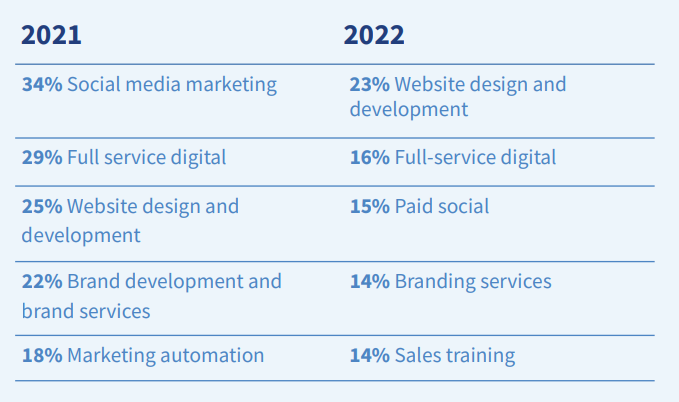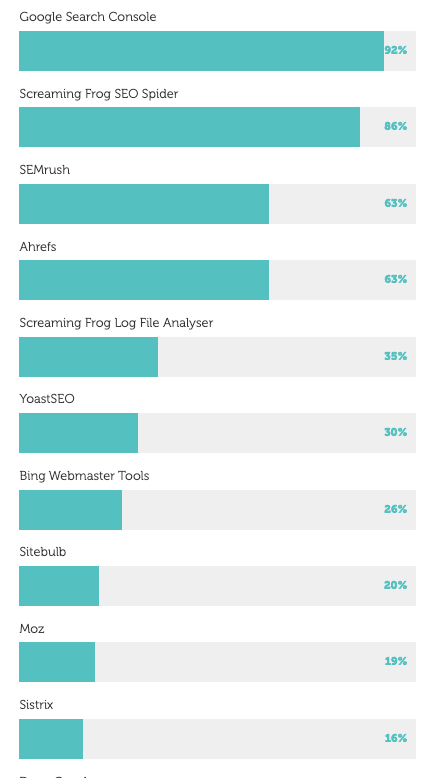AI Caution, Local SEO a 'Fad', Technical SEO Neglect

AI Content: Proceed with Caution
AI is the industry's shiny new object, which has undeniable momentum. Google's DeepMind appears poised to introduce a ChatGPT competitor. One of its differentiators will be exposed sources (like Neeva). For its part, Microsoft is going all-in on AI. Publishers are also eager to deploy AI. Last week we found out Bankrate, CNET and Creditcards.com had published numerous AI-generated articles. These pieces are apparently driving meaningful traffic and haven't been penalized by Google. However, there were some embarrassing errors in the CNET content despite claims that it was carefully checked. This screw-up illustrates the risk from too-eager adoption of AI. Publishers seeking to drive low-cost page views will increasingly use AI for content. Marketers will also generate increasing volumes of content with AI. However, these tools need to be judiciously used. Otherwise, in the zeal to reduce costs, AI output may be bland, inauthentic or simply wrong – which could be injurious to your brand.

Our take:
- Kevin Indig offers a thoughtful analysis of when AI content could work. He argues that, with careful controls, it could be highly successful.
- People are pointing to this AI-created video as impressive. Yes, in one sense, but is it something you'd want to represent your brand?
- There are many local AI uses – including review responses and SMB customer service – but rollouts should be cautious and fully monitored.
Agencies: Local SEO a 'Fad'
The majority of digital agencies, surprisingly, consider AI and "localized SEO" to be fads. Those findings are from a recent survey of 600 agency employees by CallRail. Most work for larger agencies (86% in agencies with more than 250 people; 54% in agencies with over 1,000 people). Conversely, these respondents think that 1) metaverse marketing, 2) customer communities and 3) voice search are better, long-term investments. In 2023, they're investing in 1) visual search 2) customer communities and 3) metaverse marketing. Despite saying that customer acquisition and retention would be more difficult in 2023, 82% expect average revenue growth of 43%. The popularity of services has changed over the last 12 months (image below). However, another question asked about the most commonly added new services: 1) web design, 2) paid social, 3) full-service digital, 4) paid search, 5) creative services.

Our take:
- Nearly equal numbers said clients will want more specialization (80%) and more comprehensive services (76%) in the future – a seeming contradiction.
- "Full-service digital" is opaque but the survey report says few agencies are offering organic social, content creation or SEO services.
- The view of Local SEO and AI as "fads" was very surprising. On the one hand it's ignorance, on the other denial.
Survey: Technical SEO Challenges
The biggest challenge technical SEOs identified in a new survey (n=513), from Aira & Women in Tech SEO, was "getting my recommendations implemented" (33%), followed by "showing the value of my work" (23%). The largest group of survey respondents were freelancers (24%), followed by people in agencies of 11-25 people. (The largest agencies in the survey were "100+".) The sites being worked on ranged from less than 1,000 to more than 1 million pages, with the largest group dealing with 1,000-10,000 pages. The most popular SEO tools are shown in the chart below (incomplete list). Out of 26 tools, Google Search Console is number one, followed by Screaming Frog. The biggest risk to technical SEO success was "lack of resources" (28%), then "technical debt" and "lack of buy-in/authority." Technical debt refers to deeper problems that can't easily be fixed with surface-level changes.

Our take:
- Based on the surveys above and our own research, SEO appears to be a meaningful challenge for larger agencies to manage as a service.
- It's also striking that SEOs appear to have difficulty getting clients to implement their recommendations.
- The above, plus "lack of resources" and "lack of buy-in/authority" suggest clients ignorant or confused about organic search ranking.
Recent Analysis
- ABC: Features & Implications, discussion transcript.
- Near Memo episode 96: Apple Business Connect goes live; is stack ranking effective? productizing AI.
Short Takes
- GBP category changes, additions, removals by month.
- Google testing Map pins that include business photos.
- Check restaurant wait time button appears on GBP; nobody using.
- BrightLocal: Rising stars of Local SEO.
- As it readies $10B OpenAI investment, MSFT lays off 10K employees.
- More AI-driven writing tools hitting the market.
- Getty Images sues Stable Diffusion over copyright infringement.
- POV: You can't take Google Ads recommendations at face value.
- Twitter cuts off API to third parties; here's one developer's POV.
- Apple and Meta fall off "100 best places to work" list.
- Tech layoffs driven by unhappy investors not struggling economy.
- Smartphone market contracts, iPhone share grows.
- Apple plans lower-cost mixed reality headset.
- Google working on its own version of Apple's AirTags.
- Dutch have forced Big Tech to make major privacy changes (NYT).
Listen to our latest podcast.

How can we make this better? Email us with suggestions and recommendations.

